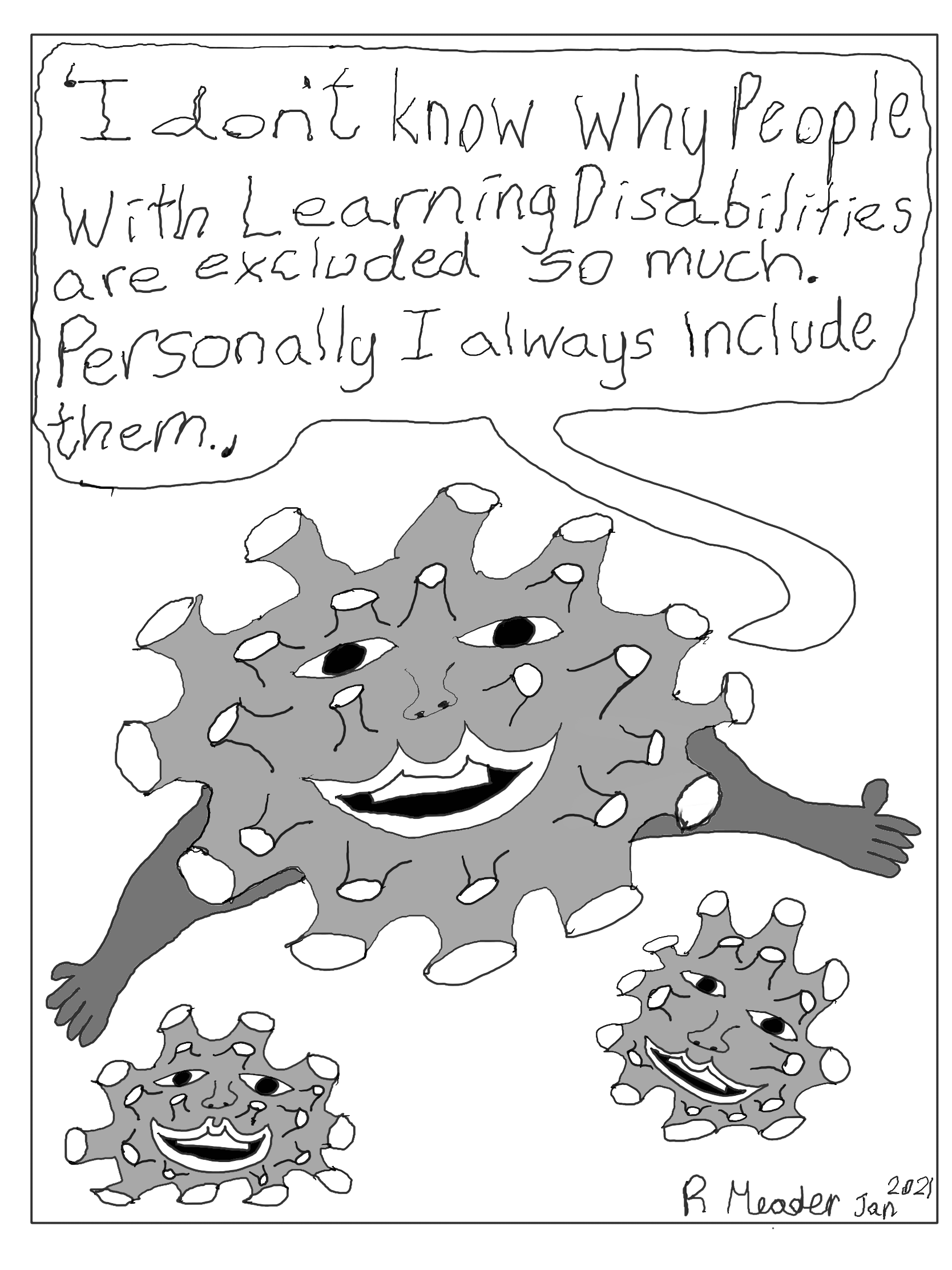The coronavirus pandemic has brought to public attention the longstanding health inequalities and injustices faced by people with learning disabilities in the UK. These injustices have always existed: arbitrary application of Do Not Resuscitate notices, preventable deaths in hospitals, high mortality and morbidity rates, greater vulnerability to epidemic and other disease, arbitrary institutional detention. Our article comparing the Spanish Flu and Coronavirus epidemics demonstrates just how enduring these problems are (When epidemics bring too many deaths). This pandemic, however, has drawn back the curtain on this situation and focused a harsh and unblinking light on it.
Just as the public have become more aware of the essential nature of previously undervalued, underpaid, invisible members of the workforce such as refuse collectors, supermarket workers, care workers and cleaners, so they have become aware of those at the sharpest end of society’s injustices and neglect.
People with learning disabilities have occupied the headlines of mainstream newspapers and television in a way that we have rarely seen before. These headlines have ranged from the particular effects that they have suffered from lockdown, to their frighteningly high death rates from Covid-19, to their initial exclusion, or partial exclusion, from vaccine prioritisation. All of this was predictable to people with learning disabilities, their families and supporters, but has come as a shock to many in the wider population. Stephen Unwin’s indictment of the many intellectuals who have waged a war against people with learning disabilities, both in the past and today (The persistent stupidity of intellectuals) explains why such otherwise inexplicable injustices persist.
We have reached therefore what we might call ‘a moment’. Our article on medical ethics (Power and prejudice: the deep roots of failure in medical ethics) calls on those within the medical profession who oppose these injustices to come together, and to form a coalition with like-minded people outside medicine, to challenge these injustices. We know that hundreds of nurses, doctors and other clinicians wrote in to challenge the exclusion of people with learning disabilities from vaccine prioritisation. Their support and commitment is now needed to continue to challenge health inequalities for this group – they cannot be quietly forgotten once the day we all long for, when the fight against the pandemic is finally won, arrives at last.
We need a campaign where members of the medical and health professions ally with people with learning disabilities to bring about irrevocable change in the NHS, where DNR notices are no longer applied, admission to abusive Assessment and Treatment Units is banned, and people with learning disabilities receive their medical treatment on a fair and equitable basis with the rest of the population.
2 Editor’s blog April 9 2021
Farewell to Rose Trustam
In December we said farewell to our publisher Rose Trustam, who died after a long illness. Her obituary is in our current issue Rosemary Trustham: a remarkable, driven advocate)
In the history of this magazine Rose is a giant figure. She rescued it from a looming financial collapse some years ago and then applied her unique combination of energy, devotion and sheer doggedness to ensure its growth as an important voice in the campaign for equal citizenship for people with learning disabilities.
Her contribution was always bigger, however, than this magazine. A relentless campaigner both at home in Lancashire and across the UK, Rose took no prisoners in her battle against injustice. She rightly perceived the marginalisation of people with learning disabilities in their society and their communities as a shameful affront to human rights and human dignity, and would never back down against any person or organisation who perpetuated this exclusion.
Her fighting spirit inspired us all at this magazine and, we know, many people beyond the magazine. Her numerous friends, colleagues and acquaintances with learning disabilities, and their families, always knew that in Rose they had an unconditional backer who would always fight their corner. We will honour that legacy of hers, and intend to continue fighting fight just as hard as she did.
Our new publisher is Jo Adshead, the Chief Executive of Linkability. Jo, a colleague and acquaintance of Rose for many years, brings the same unequivocal commitment to the protection and enhancement of the rights of people with learning disabilities as Rose. We welcome her, and thank her for the enormous effort she has put in to ensure the smooth continuation of the magazine since Rose’s sad loss, enabling us to continue to focus on our primary purpose – the fight for equality.
